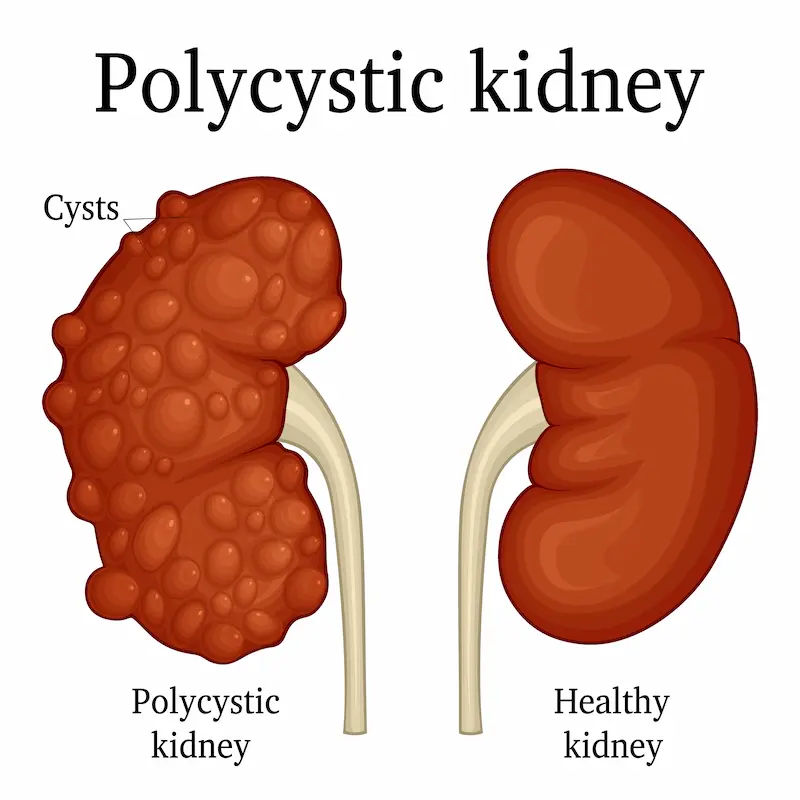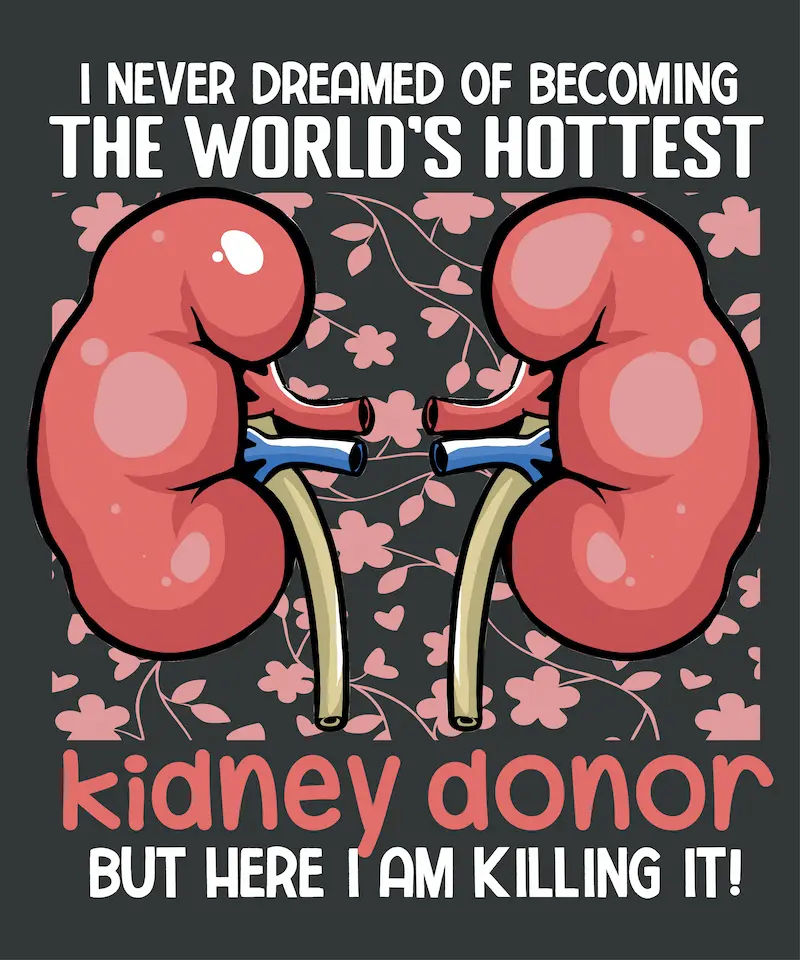Guide to Kids Too Need Kidney Care
Learn how to protect your child’s kidney health. Explore common childhood kidney conditions, symptoms, diagnosis, treatment, and prevention tips for parents.

Written by Dr. Mohammed Kamran
Reviewed by Dr. Shaik Abdul Kalam MD (Physician)
Last updated on 13th Jan, 2026

Introduction
As a parent, you are tuned into every cough, fever, and scrape. But how often do you think about your child's kidney health? These bean-shaped organs are silent workhorses, performing crucial jobs like filtering waste, balancing fluids, and regulating blood pressure. While we often associate kidney issues with adults, kids too need proactive kidney care. Childhood kidney diseases can be subtle, with symptoms mistaken for common ailments.
This guide empowers you with the knowledge to protect your child's renal health from infancy through adolescence. We will walk you through the common conditions that affect children, the red-flag symptoms you should never ignore, and the practical steps you can take to support healthy kidney function for life. Understanding these fundamentals is the first step in ensuring your child’s well-being, inside and out.
Why Kids' Kidneys Need Special Attention
A child's body is not just a small adult's body; it is a developing system with unique needs and vulnerabilities. This is especially true for their kidneys.
The Vital Jobs of Your Child's Kidneys
From birth, the kidneys are essential for survival. They act as the body's sophisticated filtration plant. Their main
functions include:
- Removing waste: Filtering out toxins and waste products from the blood, which are then excreted in urine.
- Balancing fluids and electrolytes: Ensuring the body has the right amount of water, salt, potassium, and other minerals, which is critical for everything from nerve function to hydration.
- Regulating blood pressure: Releasing hormones that help manage blood pressure, a factor that becomes increasingly important as children grow.
- Supporting bone health: Producing an active form of vitamin D, which is necessary for strong, healthy bones.
When a child's kidneys are impaired, it can disrupt growth, development, and overall health.
How Childhood Kidney Issues Differ from Adults
The causes and progression of kidney disease in children are often distinct. While adults commonly develop issues from diabetes or hypertension, childhood kidney disease is frequently linked to congenital conditions present at birth or specific immune-related disorders such as Nephrotic Syndrome. Because a child is still growing, the impact of kidney disease on their height, weight, and even cognitive development can be significant. Early detection is therefore not just about managing the disease but about safeguarding their entire developmental trajectory.
Consult Top Doctors for Personalised Advice
Common Kidney Conditions in Children
Children may face a range of kidney-related conditions. Awareness of these helps with early intervention.
1. Urinary Tract Infections (UTIs)
UTIs are among the most common bacterial infections in children. When bacteria enter the urinary tract, they can
cause an infection in the bladder (cystitis) or, more seriously, in the kidneys (pyelonephritis). Recurrent UTIs in children can sometimes indicate an underlying structural problem and, if left untreated, may lead to kidney scarring. Signs in young children can be non-specific, such as fever, irritability, or poor feeding.
2. Nephrotic Syndrome
This is a common childhood kidney disorder characterised by a group of symptoms: large amounts of protein leaking into the urine (proteinuria), low blood protein levels, high cholesterol, and significant swelling (oedema), particularly around the eyes, abdomen, and legs. The most common form in children, Minimal Change Disease, often responds well to steroid treatment.
3. Congenital Anomalies of the Kidney and Urinary Tract (CAKUT)
CAKUT is an umbrella term for a range of birth defects that affect the kidneys or urinary tract. These can include
kidneys that are missing, positioned incorrectly, or have blocked or duplicated ureters. Many of these conditions are now detected during routine prenatal ultrasounds, allowing for early monitoring and management after birth.
Recognising the Red Flags: Symptoms to Never Ignore
Kidney-related symptoms can be subtle in children. Knowing what to look for can make all the difference.
Physical Signs (Swelling, Changes in Urine)
Kidney problems in children often reveal themselves through visible, physical changes. Recognising these early signs can help parents seek timely medical advice.
- Swelling (oedema): Noticeable puffiness around the eyes, especially in the morning, or swelling in the feet, ankles, and abdomen.
- Changes in urine: Look for colour changes such as pink, red, or cola-coloured urine, which may indicate blood
(haematuria). Excessive foaminess can signal high protein levels. Pay attention also to sudden changes in frequency, whether much more or much less often. - Persistent fever: Unexplained fevers, particularly if associated with back pain, can point to a kidney infection.
Behavioural Changes (Fatigue, Loss of Appetite)
Not all symptoms of kidney disease are obvious. Sometimes, changes in a child’s energy levels, mood, or eating habits can point towards underlying kidney concerns.
- Unexplained fatigue: Consistent lethargy may indicate anaemia, a common complication of kidney disease.
- Poor appetite and nausea: A build-up of waste products in the blood can cause a metallic taste in the mouth, nausea, and loss of appetite, which may lead to poor weight gain.
- Bedwetting (in a potty-trained child): A return to bedwetting after having been dry can sometimes signal an underlying kidney problem.
If you notice any of these persistent symptoms in your child, it is crucial to consult a paediatrician. For a quick,
professional opinion, you can consult a doctor online with Apollo24|7.
How Kidney Problems in Children are Diagnosed
Diagnosis usually involves a combination of tests and evaluations carried out by a paediatrician or paediatric nephrologist.
Essential Tests and What They Mean
When kidney issues are suspected, doctors rely on specific tests to confirm the diagnosis. These tests provide vitalinsights into how well the kidneys are functioning.
- Urine tests: A simple dipstick test or detailed urinalysis can detect protein, blood, and white blood cells, providing immediate clues.
- Blood tests: These measure waste products such as creatinine and urea. High levels suggest poor kidney function. Apollo24|7 offers convenient home collection for these tests, making the process less stressful for children.
- Imaging: Ultrasound scans provide a painless, radiation-free way to assess kidney size, shape, and structure. They can detect blockages or congenital abnormalities.
- Blood pressure measurement: High blood pressure is both a cause and a result of kidney disease, making regular monitoring essential.
Treatment and Management Strategies for Paediatric Kidney Disease
Treatment depends on the child’s condition and its severity.
Medication and Dietary Management
Many childhood kidney conditions are managed with medication. For instance, steroids are often used for Nephrotic Syndrome, and antibiotics for UTIs. Dietary management is equally important and typically involves careful monitoring of salt, potassium, phosphorus, and protein intake under the guidance of a renal dietitian.
Advanced Care: Dialysis and Transplant in Kids
In severe cases where kidney failure occurs, life-saving treatments may be necessary. Dialysis, whether haemodialysis or peritoneal dialysis, helps replace the filtering function of the kidneys. A kidney transplant is the preferred long-term treatment for most children and offers the best chance for normal growth, development, and quality of life.
Building Lifelong Healthy Habits: Preventing Kidney Problems
Not all kidney conditions are preventable, but healthy habits can reduce the risk significantly. Encourage your child to:
- Stay hydrated by drinking water throughout the day.
- Eat a balanced diet low in salt, processed foods, and sugary drinks.
- Stay physically active to support healthy blood pressure and weight.
- Practise proper hygiene, especially for girls, to help prevent UTIs.
Living Well with a Kidney Condition: Support for the Whole Family
A kidney disease diagnosis can affect the whole family. Emotional support is just as important as medical treatment. Connecting with support groups, seeking counselling, and maintaining open communication with your child’s school can help manage their needs while ensuring they can participate in normal activities.
Conclusion
Your child's kidney health is a vital component of their overall well-being. By understanding the unique aspects of kidney care for kids, you can be a proactive advocate. Recognising the early signs, from subtle changes in urine to unexplained fatigue, can make a profound difference in outcomes. While the thought of a childhood kidney disorder can be daunting, modern medicine offers effective treatments and management strategies that allow children to live full, active lives.
The journey starts with awareness and is sustained by strong partnerships with healthcare providers. Fostering simple, healthy habits around hydration and nutrition lays the foundation for lifelong kidney health. If your child shows any concerning symptoms, booking a physical visit to a paediatrician with Apollo24|7 is the most important step you can take.
Consult Top Paediatricians
Consult Top Paediatricians

Dr Yaja Jebaying
Paediatric Gastroenterologist
9 Years • MBBS, MD PEDIATRICS, FELLOWSHIP PEDIATRIC GASTROENTEROLOGY AND HEPATOLOGY AND LIVER TRANSPLANTATION
Delhi
Apollo Hospitals Indraprastha, Delhi
(25+ Patients)

Dr. Rajesh Jha
Paediatrician
10 Years • M.B.B.S., D.N.B.(Pediatrics)
Noida
Apollo Hospitals Sector 26, Noida
(50+ Patients)

Dr. Sudha Saini
Paediatrician
15 Years • MBBS, DCH, DNB
Noida
Apollo Hospitals Sector 26, Noida
(50+ Patients)

Dr. Kathiravan
Paediatrician
12 Years • MD PAEDIATRICS
Chennai
Apollo Speciality Hospitals OMR, Chennai
(250+ Patients)

Dr. Debangana Chatterjee
Paediatrician
6 Years • MBBS, MD, DNB (Paed.)
Kolkata
MCR SUPER SPECIALITY POLY CLINIC & PATHOLOGY, Kolkata
Consult Top Doctors for Personalised Advice

Dr Yaja Jebaying
Paediatric Gastroenterologist
9 Years • MBBS, MD PEDIATRICS, FELLOWSHIP PEDIATRIC GASTROENTEROLOGY AND HEPATOLOGY AND LIVER TRANSPLANTATION
Delhi
Apollo Hospitals Indraprastha, Delhi
(25+ Patients)

Dr. Rajesh Jha
Paediatrician
10 Years • M.B.B.S., D.N.B.(Pediatrics)
Noida
Apollo Hospitals Sector 26, Noida
(50+ Patients)

Dr. Sudha Saini
Paediatrician
15 Years • MBBS, DCH, DNB
Noida
Apollo Hospitals Sector 26, Noida
(50+ Patients)

Dr. Kathiravan
Paediatrician
12 Years • MD PAEDIATRICS
Chennai
Apollo Speciality Hospitals OMR, Chennai
(250+ Patients)

Dr. Debangana Chatterjee
Paediatrician
6 Years • MBBS, MD, DNB (Paed.)
Kolkata
MCR SUPER SPECIALITY POLY CLINIC & PATHOLOGY, Kolkata
More articles from Kidney Disease
Frequently Asked Questions
Q1. What are the first signs of a kidney infection in a toddler?
In toddlers, signs are often non-specific and may include a high fever, vomiting, lethargy, irritability, and poor feeding. They may cry when urinating or have foul-smelling urine. Unlike older children, they may not complain of pain directly.
Q2. Can a child's kidney function improve?
It depends on the cause. In some cases, such as after an infection, kidney function can recover fully. For chronic conditions, the goal is usually to preserve existing function and slow progression with medication and lifestyle management.
Q3. Is bedwetting always a sign of kidney problems?
No, most bedwetting is not related to kidney disease. It is often due to deep sleep, a small bladder, or delayed bladder control development. However, if bedwetting starts again after a long dry period, or is accompanied by pain or fever, it should be evaluated.
Q4. What is a normal blood pressure for a child?
Normal blood pressure varies by a child's age, height, and gender. Paediatricians use specialised charts to determine if a reading is healthy. Monitoring blood pressure during annual check-ups is important.
Q5. How can I encourage my child to drink more water?
Make hydration fun. Use colourful bottles, add natural flavours like lemon or berries, set reminders, and lead by example. Limiting sugary drinks also makes water a more attractive choice.
_7.webp)


_2.webp)
